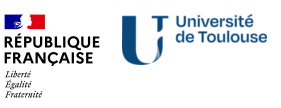Diplôme
Master (LMD)
Domaine(s) d'étude
Economie, Economie internationale
Accessible en
Formation initiale, Formation continue, VAE
Établissements
Université Toulouse Capitole
Présentation
Objectifs
Why are some countries so poor while others are so many times more affluent? Development economics is trying to provide an answer to this difficult question. The quest for this answer takes place either (i) at the level of states and countries, looking at international issues as well as into the political economy of government failure in poor countries, or (ii) at the level of individuals and firms, with a view to understand how these microeconomic agents are able to cope in such difficult environments. The Public Policy and Development (PPD) Master’s program aims at equipping its students with the tools required to become part of that quest at the cutting edge.
Modern development economics uses all the tools provided by mainstream economics, including economic theory and econometrics, to shed light on the problems facing developing countries. However, this discipline has a definite applied bent, making relevance the ultimate criterion for successful research. Ever since the end of World War II, the international community has been involved in trying to help developing countries to escape from poverty. Several international institutions have been created like the World Bank or the UNDP for collecting and channelling massive amounts of foreign aid to the countries in need. These institutions employ large number of economists and policy advisors.
The PPD program aims at training its students to become actors in that process, either within aid agencies or within their own country’s government. Moreover, many non-state actors have emerged to take part in this development process and the PPD program aims also to train potential actors in such activities. The ultimate objective pursued in the PPD program is to turn knowledge into a policy tool for improving the fate of millions of people living in poor countries.
Admission
Conditions d'admission
For more details about requirement documents and application process, please see the Admission section.
Contact Admissions :
Téléphone : +33 (0)5 67 73 27 87
E-mail : admissions@tse-fr.eu
Site : tse-fr.eu
Programme
Please refer to the detailed program of M2 mention Économie Appliquée parcours type International Public Policy and Development
Et après...
Insertion professionnelle
En savoir plus :
L'OFIP (Observatoire des Formations et de l'Insertion Professionnelle) étudie la situation des anciens étudiants 30 mois après la diplomation, poursuite d'études, processus d'entrée sur le marché du travail, caractéristiques des emplois (secteurs, statuts, fonctions, professions, revenus, mobilité géographique....).
Retrouvez toutes les études de l'OFIP sur les parcours d'études et l'insertion professionnelle des étudiants ICI.
Contact(s)
Renseignements
Renseignements sur les formations et l'orientation :
Contact scolarité
Toulouse School of Economics
1 Esplanade de l'Université
31080 Toulouse Cedex 6 France
Téléphone : +33 (0)5 61 12 85 05
E-mail : study-m2@tse-fr.eu
JOSEPA MIQUEL-FLORENSA

